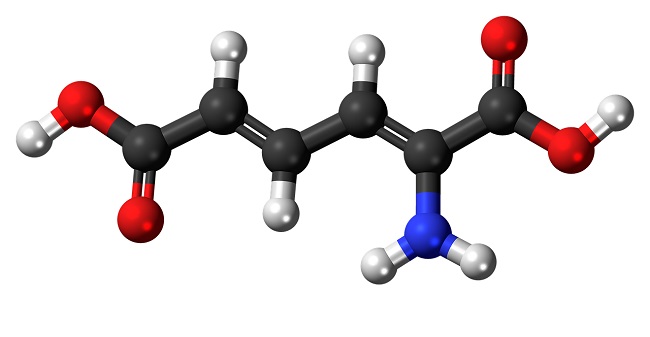Do you believe that one’s metabolism never changes? The term “metabolism” is used to describe the method through which the body converts food into usable energy.
The calories you take in from food and drink are combined with oxygen to make the fuel your body needs to function. To put it simply, metabolism is the sum of all chemical reactions essential to cellular function and, by extension, to the survival of an organism.

Macronutrients in the diet are broken down into their component atoms and used to power the body’s cells and their myriad processes. Macroscopic nutrients are broken down by the metabolic process into molecules that can be used by cells for growth and reproduction, as well as into organic waste.
Read Also:
- How to Tell if Your Girlfriend is Faking
- Real Simple Six Habits That are Secretly Making You Miserable
To avoid producing an ineffective substance when it is not needed, metabolic pathways are tightly regulated to prevent cells from doing so.
It is metabolically wasteful for cells to both make fatty acids and destroy them, much like it is inefficient to build walls while simultaneously tearing them down. It’s true that a person’s metabolism stays the same no matter how old they get.
Contents
An average human being’s metabolic rate
The average basal metabolic rate of a male is roughly 7,000 kilojoules per day, whereas that of a woman is 5,902 kilojoules per day. Its energy expenditure is constant, but its intensity varies throughout time. Early in the morning is normally when energy use is at its lowest.
Kilojoules are the unit of measurement for the energy that can be obtained from food and drink. This is the metric equivalent of the English word “calorie.”
Energy is measured in either kilojoules or calories, but they are equivalent. Calories are measured in Kilojoules, which are four times that of a calorie.
The Scientific Consensus on How Fast a Person’s Metabolism Works Never Changes.
Carbohydrates can also be referred to as calories. Over the course of a lifetime, a person’s metabolic rate stays the same. Saved fat provides insulation for inside organs.
Simply said, a calorie is a unit of measurement for the amount of energy gained from eating a certain item. Carbohydrates are crucial not only because they are the primary source of energy, but also because they are one of the most vital types of nutrients.
The human body deteriorates with age. This is why it’s so important to get annual checkups to ensure our bodies are healthy.
When we eat poorly and don’t exercise enough, we put unnecessary strain on our bodies and increase the risk of developing health problems.
Maintaining a healthy metabolism requires a commitment to a regimen of nutritious diet, frequent exercise, and potentially therapeutic medicine.
The Role of Metabolism
The term “metabolism” is used to refer to the body’s chemical processes that maintain cellular and organismal health.
Bioenergetics refers to the biochemical and metabolic processes through which cells and organisms generate energy. Metabolism’s main job is to convert food into usable energy.
It is a biochemical process that takes place in a live organism and is facilitated by enzymes.
Nutrition and the availability of nutrients play a significant role in metabolism. Carbohydrate, protein, and lipid metabolism are only a few examples of the many metabolic processes at work in the human body.
More energy is produced by fat metabolism than by the metabolism of carbohydrates or protein, and protein is essential for numerous processes, including the provision of nitrogen for the synthesis of DNA and RNA.
Why Your Muscles and Kidneys Aren’t Working as Well as They Should
Due to renal disease’s diminished ability to filter waste products, toxic accumulation is another potential complication. This might lead to muscle weakness and weariness. A deficiency of red blood cells is known as anaemia.
The internal environment of the body as a whole may suffer as a result. There is a possibility that calcium is having an influence, or that a salt imbalance is to blame.
The quantity of vitamin D in the body. Kidney disease slows the kidneys’ ability to filter the blood, which can lead to an accumulation of toxins. Because of this, muscle weariness and weakening may result.
It is crucial to maintain a healthy body weight and exercise routine no matter what your age. Damage to tendons and muscles heals more slowly with age.
A well-thought-out exercise routine is essential for everyone, regardless of age. Physiotherapists and trainers are crucial for avoiding muscular injuries.
The Metabolic Rate of an Individual Does not Change Significantly Over Ttime.
No, The myth that a person’s metabolism stays the same throughout their lives is widely held. Several methods are easily available for evaluating various metabolic aspects. The problem is that not every solution works perfectly in every scenario.
Read Also:
- Who is the Dumbest Person in the World
- That’s the Difference Between Me and You
- Compare and Contrast a Casual Friendship With a Close Friendship.
The choice of methodology should be informed by the nature of the research problem at hand, with feasibility and precision as the two most important criteria to weigh.
We may have a better solution if we combine multiple types of measurement. More innovative approaches are needed to improve the precision and reliability of energy intake estimates.























